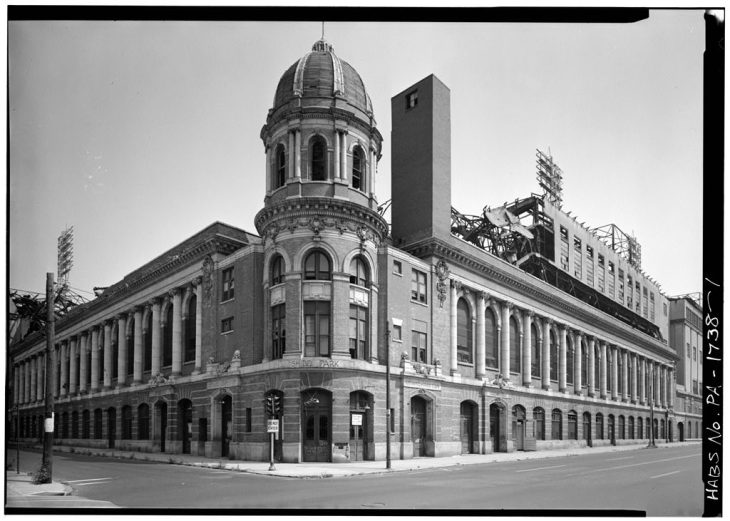
Word of the Day: Garrulous
Today’s word of the day is garrulous, courtesy of the Word of the Day app. According to the app, garrulous is an adjective that means “very talkative and rambling about unimportant things.” According to www.etymonline.com, the word came into the language during the height of the period when English scholars were borrowing words into English from Latin, a period from the mid-16th to the mid-17th century. Specifically, the word appears in the “1610s, from Latin garrulus ‘talkative, chattering,’ from garrire ‘to chatter,’ from PIE root *gar- ‘to call, cry,’ of imitative origin (compare Greek gerys voice, sound,’ Ossetic zar ‘song,’ Welsh garm, Old Irish gairm ‘noise, cry’).” You can learn more about inkhorn terms by checking here or here or here. And by the way, in linguistics, “of imitative origin” refers to a word that imitates a natural sound, like hiss or growl.
On this date in 1876, the New York Mutuals were expelled from the National League of Professional Base Ball Clubs. Never heard of either one? That’s okay.
The New York Mutuals, initially an amateur baseball team, grew out of a firehouse. The club existed from around 1850 to 1876. In the late 1860s, it made the move to being a professional franchise, and in 1871 if joined the National Association of Professional Base Ball Players, a league which last only five years.
Before the 1876, spearheaded by the Chicago White Sox, a new league was formed, the National League of Professional Base Ball Clubs, usually simply called the National League or NL. The other league would not be formed for another 25 years, so for a quarter of a century, the NL was it. The new league had teams from the East and from the Midwest, and the league structure created much more control over the clubs than the NAPBBP had had.
So what happened to the Mutuals? They did not have a very good year in 1876, and toward the end of that season the club ran short of funds, so the club leadership decided to not fulfill its obligations to some of those Midwestern clubs. They owed those clubs a total of nine games (the club finished the 1876 season with 21 wins and 35 losses, so its total schedule had only 65 games). As a result of this failure to complete its schedule, the National League expelled the New York Mutuals from the league, and that was the end of the club.
There was actually a second club that experienced the same difficulties in that first season with the new National League. It was a team from Philadelphia, and like the Mutuals, it was expelled from the NL after the 1876 season. However, the name of that league lives on.
In competition with the National League, the Western League (actually several leagues that existed between 1876 and 1899) expanded its operation by opening franchises in several Eastern cities, including Philadelphia. In 1901, the Western League changed its name to the American League and declared itself a second major league in American baseball. The Philadelphia franchise was named the Phillies. It began its history in the National League in 1883, replacing a team from Massachusetts.
The new franchise hired former Phillies catcher Connie Mack to be the manager of the new club, and Mack persuaded a sporting goods executive named Benjamin Franklin Shibe to invest in the club. And they named the club the Philadelphia Athletics, the name of the club that was expelled from the National League in 1876.
By the way, as a kid growing up near Philadelphia, my dad took me and my brothers to see the Phillies play; the Athletics left Philadelphia in 1954, moving first to Kansas City and then to Oakland, where the Athletics still play. The stadium that we went to a ballpark that was on Lehigh St. in Philly, a park built by Ben Shibe and called Shibe Park. It opened in 1909. Shibe and Connie Mack decided to build the stadium because their original home sat only just over 9,000 fans, and on one occasion 28,000 fans showed up for a game. By the time I was a kid, the stadium’s name had been changed to Connie Mack. But eventually close after the 1970 season and demolished in 1976. Of course, by then the Athletics were long gone.
A lot of other things happened on this day: the Royal Opera House opened at Covent Garden in 1732; Delaware ratified the U.S. Constitution in 1787, the first state to do so; Edison demonstrated the phonograph in 1877; Leo Baekeland patented his process for making plastic in 1909; Japan attacked Pearl Harbor in 1941 (“a date which will live in infamy”); in 1965, Pope Paul VI & Ecumenical Orthodox Patriarch Athenagoras I simultaneously lifted mutual excommunications that led to the Great Schism of 1054; the first Star Trek movie was released in 1979; Yasser Arafat declared the State of Palestine and recognized the existence of the State of Israel in 1988; and Joe Biden warned Vladimir Putin of economic consequences if Putin continues a military build-up on the border with Ukraine.
But I chose to talk about the history of baseball today. Perhaps I am just in a garrulous mood.
The image today is of Shibe Park or Connie Mack Stadium. I found it on the blog of ballpark junkie, so thanks to whoever that is.